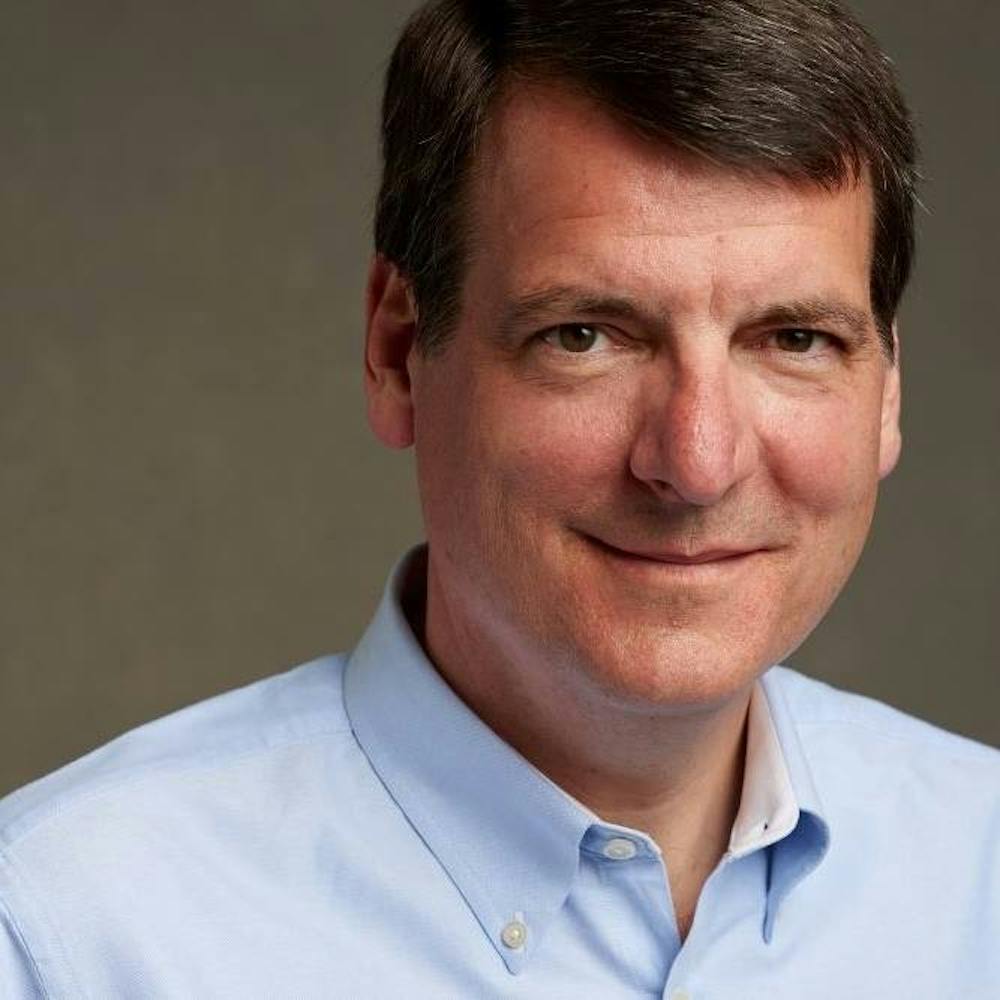The Daily Princetonian sat down with the former Director of the Division of Investment Management of the Securities and Exchange Commission Norm Champ ’85 to discuss his role in the regulation of the finance industry after the Great Recession. Champ’s recent book, “Going Public: My Adventures Inside the SEC and How to Prevent the Next Devastating Crisis,” details the process of financial reform both by and within the SEC after the crisis, and is set to be published in March. Champ is currently a lecturer at Harvard Law School and a partner at Kirkland & Ellis LLP Investment Funds Group.
The Daily Princetonian: You concentrated in history when you were at the University, and then studied war studies at King’s College, London, and went to Harvard Law. Can you tell us about what inspired you to pursue this particular academic path, and how it has influenced and helped you in your career?
Norm Champ: I was a history buff from the time I was a little kid, so I used to read these one-dollar Valentine books, history of the Second World War books. I read those as a kid and I was interested in history the whole way along. When I came to Princeton, I was drawn to the history department, and I continued to study military history at Princeton, and that included with James McPherson, who’s a Civil War historian, the best historian of the Civil War. While I was at Princeton, I really enjoyed the history department. I was even considering maybe going for a Ph.D. in history, and so I ended up applying for a Fulbright Scholarship to go to the U.K. and continue studying military history, and I got a master’s degree there, but at that point I decided I wanted to have a little more marketable skills and so instead I decided to continue on with my other original desire, which was to be a lawyer. I ended up applying to Harvard Law School and started there in 1986, graduated in 1989. It was an interesting question, how studies influence your career. I think being a history major was great for being able to learn how to absorb a lot of material and analyze material and be able to write well about that material. All of that was extremely helpful in becoming a lawyer and being able to use those skills in the law as well. Plus, I’ve remained an amateur history guy, so I continue to read a lot of history and continue to love it.
DP: Can you tell us a little bit about your work at the SEC during and after the financial crisis?
NC: I started at the SEC in January of 2010, so that was after the financial crisis. Fall of 2008 was the main kickoff of the financial crisis. I came in a little over a year later, January of 2010, and I first came to the SEC to head up examinations of investment managers in New York and New Jersey at the New York regional office. The New York regional office has the most asset managers and most asset management assets in the country, and so I originally came in and was in charge of those exams. After a few months, I got promoted to be deputy director of the whole exam program across the whole United States, not just for investment managers, but also for broker-dealers, credit-rating agencies, transfer agents, financial securities exchanges, all sorts of entities that the SEC regulates. I was the deputy director of the exam division for two more years. Altogether, the first two and a half years I spent in the examination group and the examination division, most of it as deputy director. In the summer of 2012, I got named the Director of the Division of Investment Management at the SEC, which is the division that writes all of the guidance and all of the rules for the asset management industry of the United States. So, [I am] no longer doing examinations, but now working on rules and guidance and all of the policy around asset management in the U.S., and that’s for all kinds of funds, so mutual funds, hedge funds, private equity funds, anybody in the fund business.
DP: What were some of the rules and reforms you pushed through for the financial industry as a whole in order to try to prevent something like the 2008 crash from happening again?
NC: The two main policy reforms that I worked on as head of investment management, the first one was reforms to the money market mutual funds industry. Money market mutual funds are funds that many investors have, but don’t necessarily realize that they have them. If you have a securities account, or asset management account, and an asset manager, cash is usually kept in these money market funds accounts, and that account actually looks very much like a checking account, because you can write checks and so forth. Up until the crisis, those accounts were allowed to have a fixed one-dollar-per-share value, so you put in a dollar, you get a dollar back. That sounds a lot like a bank account, but these were still securities accounts and they invested in securities, so there was a bit of a mismatch there, between the fact that they were carried at a dollar a share but they invested in securities that had risk. In the crisis, several of them got in trouble because — they had a particular one called primary reserve — they got in trouble because they held securities of Lehman Brothers, and Lehman Brothers went into bankruptcy. While I was [at the SEC], we worked on reforms that were adopted in 2014 that did many things. The main thing they did was they forced some of the money market funds to float their price, so they could no longer be a fixed one-dollar price, so it would show what the real value was. And then we allowed the money market funds to put up so-called “gates” to stop people from withdrawing from the fund if there was a problem with the fund’s price. We passed those reforms in 2014. The second big thing I worked on from a policy perspective was the Volcker Rule, which is a rule that attempts to separate two types of activities at banks. On the one hand, banks are handling money that’s insured by the federal government, by the FDIC, and so the Volcker Rule seeks to limit the use of insured money for traditional banking practices, like lending for mortgages and [certificates of deposit]. What the Volcker Rule is trying to do is saying, ‘You can do traditional banking activities with insured money, but we don’t [want] you doing risk-taking activities,’ and so the Volcker Rule tries to draw the line between activities that you can undertake using insured money. It’s a thousand-page rule, and it’s very complicated, but it’s trying to draw that line between the two types of activities.
DP: So the Volcker Rule is part of the Dodd-Frank Reforms. How do you feel about the new government administration’s plans to review and potentially reverse Dodd-Frank and loosen financial regulations? What do you think the effects of those will be, and how much more likely will they make another financial crash in the future?

NC: Dodd-Frank had a lot of provision in it that had nothing to do with the crisis. They were things that various people wanted put in the bill, but they had no direct link to the crisis. I think the Treasury Secretary, Steven Mnuchin, is going to undertake a review of Dodd-Frank and I think they can locate a lot of provisions that don’t relate to the crisis that should get reviewed. I think that one of the main things the administration’s going to focus on is trying to make sure that our markets here are very healthy, and that would mean getting more companies to list their securities and go public here. We’ve had a decline in the number of companies going public in the United States, and they think the administration’s going to try and reverse that and get more companies to go public here, and that would be great for the depth of U.S. markets and for growth in the United States. What we need in the United States is more growth to help all Americans.
DP: You left the SEC after five years of senior leadership positions to go to a very large private law firm [as a partner], Kirkland & Ellis. What motivated that decision and what are some of the differences that you experience in your work now?
NC: So I left the SEC in January of 2015. I took the first year off after I left and worked on the book, and taught my class at Harvard Law School that I teach every year, did some consulting. And then in February of 2016, I returned to private practice at Kirkland & Ellis. We have an Investment Funds Group at Kirkland & Ellis that represents investment funds, mostly private funds, but also public funds, and we have the largest funds practice in America. It’s been very interesting to return to private practice and very enjoyable to help clients structure their affairs to comply with SEC rules and regulations. It was motivated by the fact that five years on a government salary was enough, and I felt like we made a lot of changes at the SEC and it was kind of time to move on. We had the opportunity to make a lot of changes that a lot of people didn’t think we could make. The single biggest difference in being in the private world is you’re in the more free market environment, as opposed to a government environment. It’s been great fun; [I'm] enjoying being back in private practice.
DP: Is there anything else you’d like to add?

NC: I’m really looking forward to getting to speak at the Wilson School on Monday, and looking forward to hopefully having good dialogues with students. I teach at Harvard Law School and I’ve taught some classes at Princeton for the Bendheim Center [for Finance] and others. You don’t get a chance to spend a lot of time with students, and I always enjoy it, so looking forward to doing it again on Monday.








